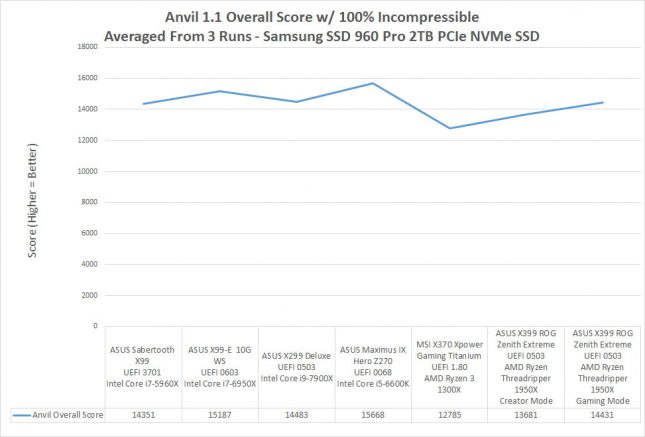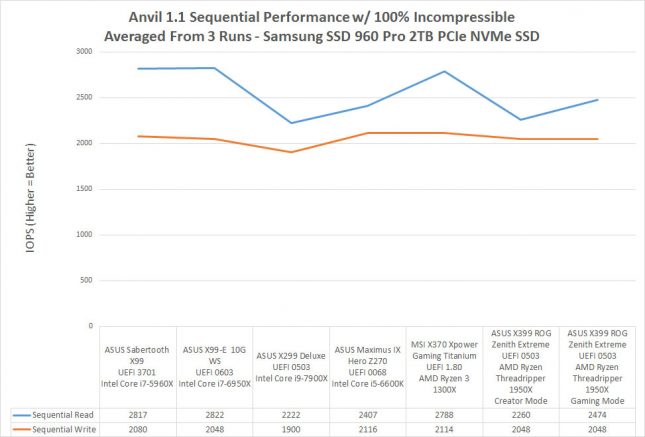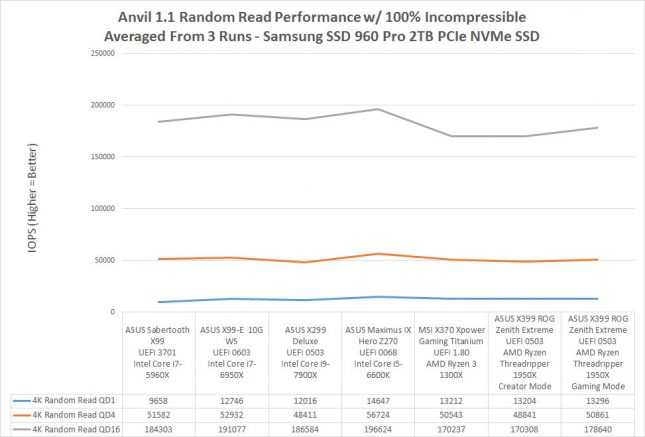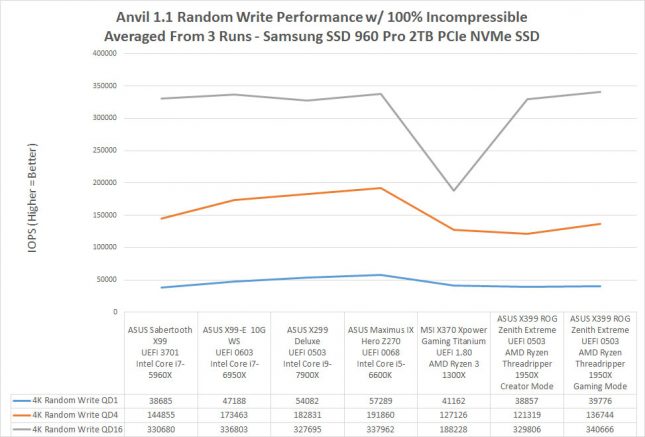Two PCIe NVMe SSDs Tested On Six Motherboards By Intel and AMD
Will Another PCIe NVMe SSD Show Performance Differences?
The Samsung SSD 960 Pro 2TB M.2 PCIe NVMe is one of the fastest M.2 PCIe NVMe SSDs that we ever tested, so we gave it a shot on the boards as well.
We updated the firmware on our 960 Pro to version 2B7Q and used Samsung NVMe Driver 2.2 for testing this storage drive.
When it comes to the overall score in Anvil with the Samsung SSD 960 Pro 2TB drive installed in the system we found that the Intel systems had better performance overall. The AMD Ryzen Threadripper 1950X processor in the X399 board did better in Gaming mode than Creator mode like before and the highest overall score went to the ASUS Maximus IX Hero Z270 board.
When it came to sequential performance the Intel X99 boards were getting over 2800 MB/s Read and around 2050 MB/s Write. The newer X299 board was getting 600 MB/s lower Read and around 150-180 MB/s lower Write speeds for some reason. We shared our results with Intel, but other than asking if we tested on Intel branded drives they didn’t give us a direct response. The AMD X370 platform was performing better than the AMD X399 platform, so we have some strange results that are all over the place here with this drive. And just to remind people the drive was secure erased between platforms.
When it came to 4K Random Read performance the lines in the chart above look pretty flat, but the results were pretty different. On the ASUS Sabertooth X99 board that we use for our storage drive testing we got 9,658 IOPS for QD1 and on the ASUS Maximus IX Hero Z270 board that Corsair sent from Taiwan we were getting 14,647 IOPS. That means we were getting 52% more QD1 IOPS on the Z270 board than the X99 Sabertooth.
When it comes to 4K Random Write performance the ASUS Maximus IX Hero Z270 board had the highest score of the bunch with 57,289 IOPS at QD1. This is a 48.1% increase in IOPS over the ASUS Sabertooth X99 board. Massive performance difference! The AMD X370 and X399 platforms were tested with the latest chipset drivers (17.30) and the Random Write performance was notably lower than what we were seeing on Intel platforms. The AMD X370 platform we used had awful 4K Random Write performance at QD16 for some reason. We have seen folks saying that AMD’s 4K random disk performance on PCIe and especially SATA is way behind Intel for some time now and it does look like PCIe performance is generally slower.





